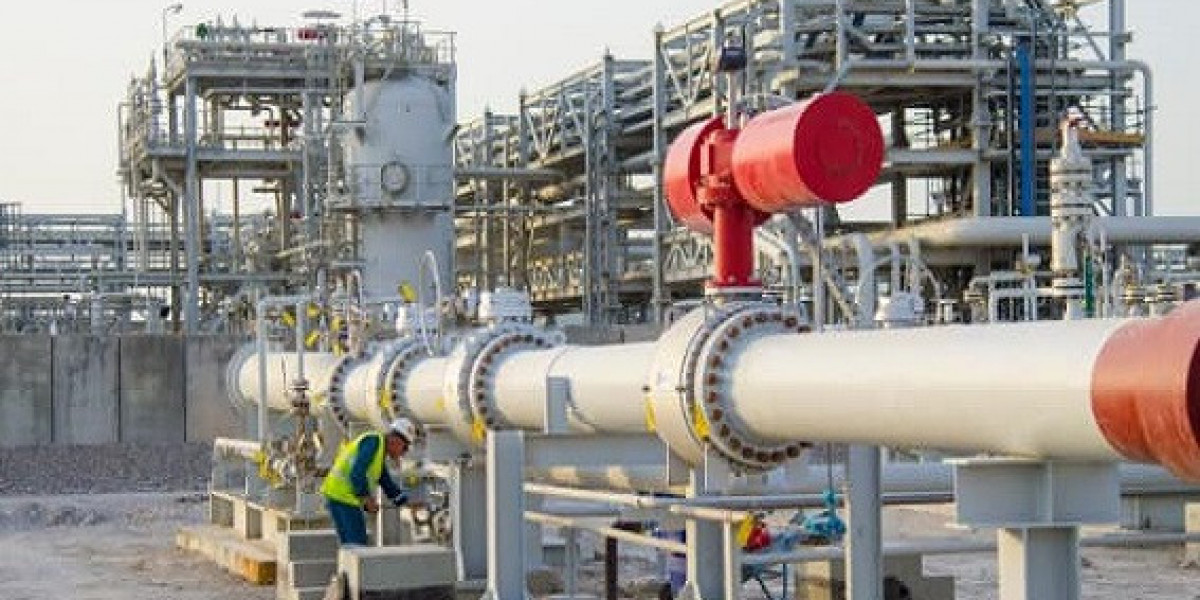Possessing one of the five largest known oil reserves throughout the entire world, Iraq's natural gas and oil industry leans largely on professional Iraq oil and gas construction companies to establish and sustain its critical energy system. These firms design and build pipelines, refineries, gas processing plants, and export terminals—projects that are vital to Iraq’s economy, which depends on hydrocarbons for over 90% of its government revenue. Among these key players, MUE Group has emerged as a leader, delivering engineering, procurement, and construction (EPC) solutions that meet both local needs and international standards.
This article explores the role of Iraq oil and gas construction companies, their biggest challenges, landmark projects, and how they are adapting to global energy trends.
The Critical Role of Iraq Oil and Gas Construction Companies
These firms operate across the entire project lifecycle:
1. Upstream Infrastructure
· Oil well pads and drilling rig installations
· Gas compression and separation facilities
2. Midstream Networks
· Cross-country pipelines (e.g., the strategic Basra-Aqaba route)
· Storage terminals and pumping stations
3. Downstream Facilities
· Refineries like the upgraded Daura complex in Baghdad
· Petrochemical plants to add value to crude exports
4. Gas Utilization Projects
· Capturing flared gas for electricity generation (Iraq burns ~17 bcm annually)
Companies like MUE Group combine local expertise with global technologies to execute these projects efficiently.
Key Challenges in Iraq’s Oil and Gas Construction Sector
1. Security Risks
Instability near oilfields and export routes.
Solution: Enhanced site security protocols and modular construction.
2. Aging Infrastructure
Decades-old pipelines and refineries need replacement.
Solution: Phased upgrades using corrosion-resistant materials.
3. Bureaucratic Hurdles
Delays in permits and contract approvals.
Solution: Proactive engagement with Iraqi ministries.
4. Skilled Labor Shortages
Shortage of trained engineers and technicians.
Solution: Vocational training programs by firms like MUE Group.
Landmark Projects Shaping Iraq’s Energy Future
1. Common Seawater Supply Project
$4 billion initiative to inject water into oilfields, boosting production.
Involves multiple Iraq oil and gas construction companies.
2. Basra Gas Company Expansion
Captures flared gas to produce LPG and electricity.
3. Fao Refinery Project
Planned 300,000 bpd facility to reduce fuel imports.
4. Solar-Hybrid Oilfield Electrification
Pilot projects pairing solar farms with fossil fuel operations.
Innovations Driving the Sector Forward
✔ Modular Construction – Prefabricated units assembled on-site for speed and safety.
✔ Digital Twins – 3D models to simulate pipeline networks and refineries.
✔ Low-Carbon Techniques – Carbon capture and electrification of drilling rigs.
✔ Intelligence or aerial vehicles: During line screening + maintenance forecasting.
MUE Group has pioneered these approaches in projects like the Rumaila oilfield upgrades.
Case Study: MUE Group’s Impact
As a leading player among Iraq oil and gas construction companies, MUE Group has:
Built gas processing plants cutting flaring by 40% in southern fields.
Export terminals have been upgraded to accommodate 1.2 million barrels per day.
Trained 500+ Iraqi engineers through partnerships with local universities.
The Road Ahead: Trends to Watch
· Local Content Mandates – More Iraqi workforce and material requirements.
· Gas Monetization – Ending routine flaring by 2030 (government target).
· Renewable Integration – Solar-powered oilfield operations.
· Regional Connectivity – New pipelines to Turkey and Jordan.
Conclusion: Engineering Iraq’s Energy Destiny
Iraq oil and gas construction companies are more than contractors—they are nation-builders, turning resource wealth into sustainable growth. With firms like MUE Group blending global expertise with local execution, Iraq’s energy infrastructure is poised to meet both current demands and future challenges.
As the world transitions to cleaner energy, these companies must adapt—but their role in powering Iraq’s economy remains indispensable. The foundations they lay today will determine Iraq’s energy competitiveness for decades to come.














